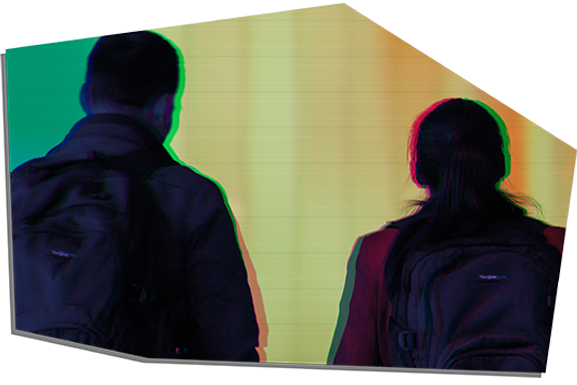
Apply now
Life at SIS
We offer a wide range of exciting roles here at SIS. Discover our very latest vacancies, and make the decision to apply today.
All candidates need to start their application through our website, and from within the UK. If you’re overseas, you should wait until you return to the UK to apply. Unfortunately, if you apply while you’re out of the country it will affect the progress of your application.
Before you apply, we advise you to consider setting up a separate email address for your contact with us, to ensure your personal and application correspondence remain separate. Try to avoid having identifying features in your email address, such as your first and/or surname and date of birth. This is good practice and will help you to manage your application with us more discretely.
Am I Eligible?
SIS is a large organisation, much like many others. But it’s also unlike any other employer you’ll ever work for. Due to the sensitive nature of our operations, if you decide you’d like to apply, you’ll need to be eligible first and pass our security clearance too. Here’s everything you need to know before you progress with your application to work with us.
Nationality
We protect British interests both at home and overseas. Because of this, to be eligible to apply you must be a British Citizen. If you hold dual nationality, of which one component is British, you will nonetheless be considered but you may be required to give up your non-British citizenship before you can take up employment with us. Each case will be carefully considered on its own facts.
Candidates must normally have been resident in the UK for seven out of the last ten years. This is particularly important if you were born outside the UK. You can apply from the age of 17 years. If successful, you will not be offered a start date prior to your 18th birthday.
Medical History
Our staff and contractors are subject to a no drugs policy to reflect the adverse impact of illegal drug use and the misuse and abuse of other substances on behaviour, judgement, physical and mental health. The policy prohibits the use, possession or supply of illegal drugs, psychoactive substances and legal highs. Misuse or abuse of prescribed medication or any other substance is also incompatible with holding security clearance which can be withdrawn if this policy is not observed so you should adhere to our policy from the point of application onwards. The point of application is the date you submit your application form. We realise some of our candidates will have used drugs in the past, and this may not be a bar to a successful application, but it is important to be open and honest about your drug/substance use. You will be asked during the recruitment process to provide a sample which will be tested for drugs should your application proceed.
Reasonable Adjustments
As Disability Confident leaders, we want you to feel comfortable and supported throughout the recruitment process. It’s why we make reasonable adjustments to ensure those with disabilities and long-term health or neurodivergent conditions can perform at their best. Our aim is to provide a level playing field; reasonable adjustments can reduce or remove any disability-related barriers or disadvantages that you might otherwise face during the process. These adjustments can take many different forms but often include things like: changing the colour of printed documents, allocating extra time for tests, adjusting room set-up or changing venues.
You might not know if/when you need adjustments, so we’ll provide prompts at stages throughout the process to ensure you have the help and support you need, when you need it. Simply let us know, and we’ll support you. Should you be offered a role with SIS, we’ll make sure to confirm with you any requirements you may need in the workplace, so that it becomes an environment where you can excel – and where your only focus will be the mission.
What is vetting?
Because you will have access to sensitive government information, to work for SIS you will need the highest security clearance, known as Developed Vetting (DV). It’s something everyone in the UK Intelligence Community undertakes and it can take some time, but it’s our way of understanding whether it’s appropriate for you to have access to classified information and it ensures that we minimise any risks to you or us.
What does it involve?
As part of the DV process you will be asked to fill in detailed questionnaires, agree referees and attend an interview with a vetting officer. In your interview the vetting officer will have a thorough, compassionate and honest discussion with you about you as a person and your life experiences, to ensure holding a DV clearance is right for you.
The vetting officer will cover topics with you such as family, friends, finances, health, relationships and lifestyle. It may feel a little uncomfortable to speak about these things, but rest assured our vetting officers are trained in how to make the environment safe for you to have these conversations.
Honesty and integrity is central to a career in SIS, so if you deliberately withhold or minimise information about yourself during the vetting process, this could result in DV being refused.
Our commitment to you
At SIS we are committed to equality, diversity and inclusion. Our vetting officers are trained to a high standard and treat all applicants with dignity and respect, whatever their background or circumstances. Any information obtained during the vetting process is treated in strict confidence and in line with our statutory obligations. Vetting information is held separately from recruitment information.
Vetting process FAQs
Below are some of the most commonly asked questions about vetting from candidates. If you have a question which isn’t answered below then you can ask us at any stage of the recruitment or vetting process.

When will you contact my referees?
We won’t contact any of your referees before gaining your permission. Some may be spoken to face-to-face, others over the phone or we may write to them. If you are struggling to identify a referee don’t worry, you can talk it through with your vetting officer.
How is the decision taken to grant DV?
Each case is assessed individually and carefully considered. Vetting officers are not there to judge, they understand that everyone will have different life experiences and will take a realistic view of life and the stresses that come with it. We value and respect everyone’s differences, so we ensure that candidates undergoing our vetting process are treated impartially and consistently irrespective of eg. gender, sexual orientation, ethnicity, religion or disability.
Will I get feedback on my vetting?
If DV is granted, you will be given an unconditional offer of employment. Unfortunately, we do not give feedback on unsuccessful vetting applications due to national security considerations.
What if I already hold a security clearance?
If you already hold a level of security clearance, you will be asked provide details as part of the vetting process. Because DV is the highest level of security clearance you will still need to go through the vetting process. If you already have a DV from another government department, you may not need to go through some elements of the vetting process again, though this will be assessed on a case-by-case basis.
Do I have to maintain my DV?
Yes, once you have been granted DV clearance, our vetting team will work with you to help you maintain it. When you join SIS you will have an ongoing relationship with vetting where your clearance will be reviewed at regular intervals throughout your career.

